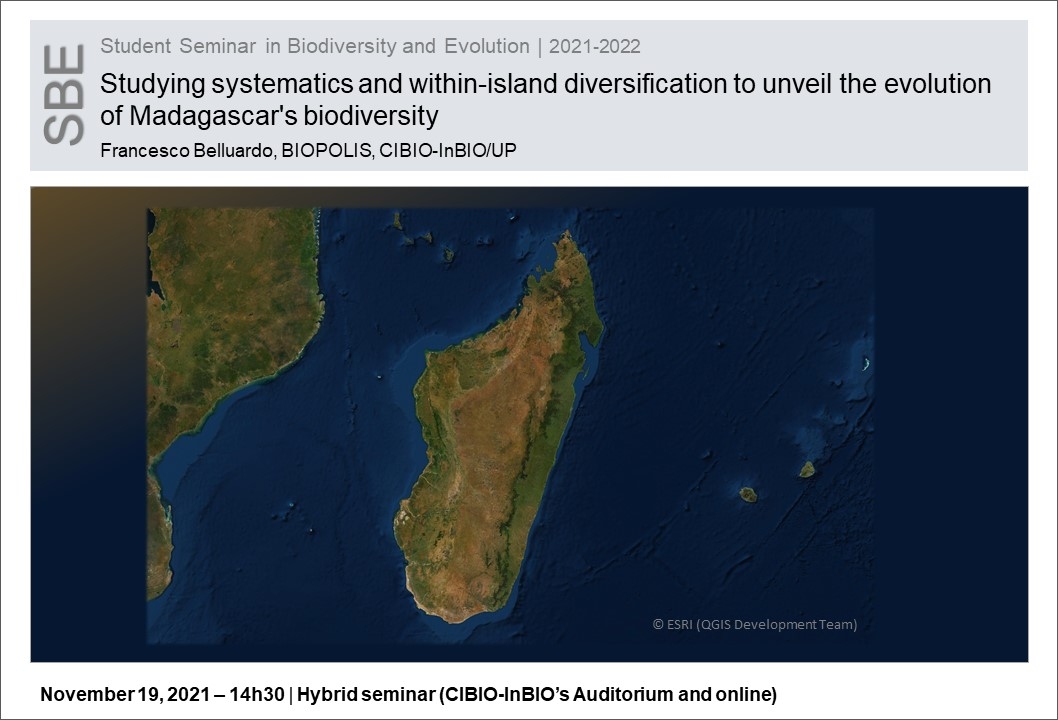Studying systematics and within-island diversification to unveil the evolution of Madagascar's biodiversity
19 Nov 2021 - Francesco Belluardo, BIOPOLIS, CIBIO-InBIO/UP | 14h30

STUDENT SEMINAR IN BIODIVERSITY AND EVOLUTION
Madagascar hosts exceptional levels of vertebrate diversity, primarily the result of long-standing isolation and a process of in situ diversification that has occurred upon dispersal (colonisation) of the ancestors of the lineages occurring today on the island. These combined processes resulted in an extremely high degree of endemism, spanning from the species level to entire families that are only present in Madagascar. The numerous species-rich evolutionary radiations are probably the most impressive consequence of these processes, for which, anyway, we are still lacking an understating of the general diversification pattern.
In this seminar, I will present the results of my PhD project. Across the different studies included in the thesis, I will report a species inventory carried out in a highly deforested region where even small and isolated forest fragments have been shown to host irreplaceable herpetological diversity. Numerous analogous inventories carried out over the years in different parts of the country made it possible to produce genetic data at the species-level from two secretive herpetofauna clades (frogs of the genus Rhombophryne and skinks of the endemic clade of Malagasy Scincinae), infer new phylogenies and pose hypotheses for their diversification. In the case of the skinks, it was possible to investigate different aspects of the diversification pattern of this species-rich radiation (diversification rate, phenotypic evolution, and biogeography). Finally, I will report an attempt to obtain molecular data from a pigmy hippo belonging to the extinct Malagasy Quaternary megafauna to unveil its colonisation history. Overall, this thesis shows that cataloguing biodiversity and conducting fieldwork to collect samples across taxonomic groups (often representing rare animals that are difficult to detect in the field) is fundamental to clarify clades systematics and, consequently, foster our knowledge on the colonisation history and in situ diversification patterns of Malagasy vertebrates.
Francesco is currently enrolled in the BIODIV Doctoral Programme at CIBIO-InBIO and University of Porto, under the supervision of Dr Angelica Crottini (Biogeography and Evolution group) and co-supervision of Prof. Alexandre Antonelli (University of Gothenburg, Sweden) and Dr Elisabetta Cilli (University of Bologna, Italy). His PhD project is focused on the use of diversity cataloguing and systematics to unveil different aspects of the evolution of Madagascar’s vertebrate diversity.
[Host: Angelica Crottini, Biogeography and Evolution - BIOEVOL]